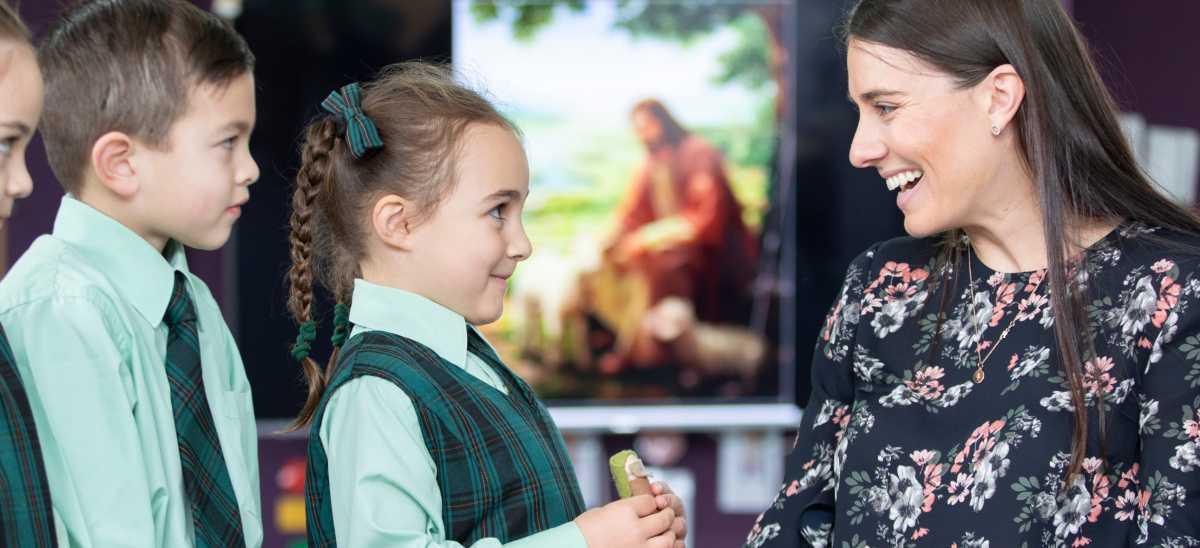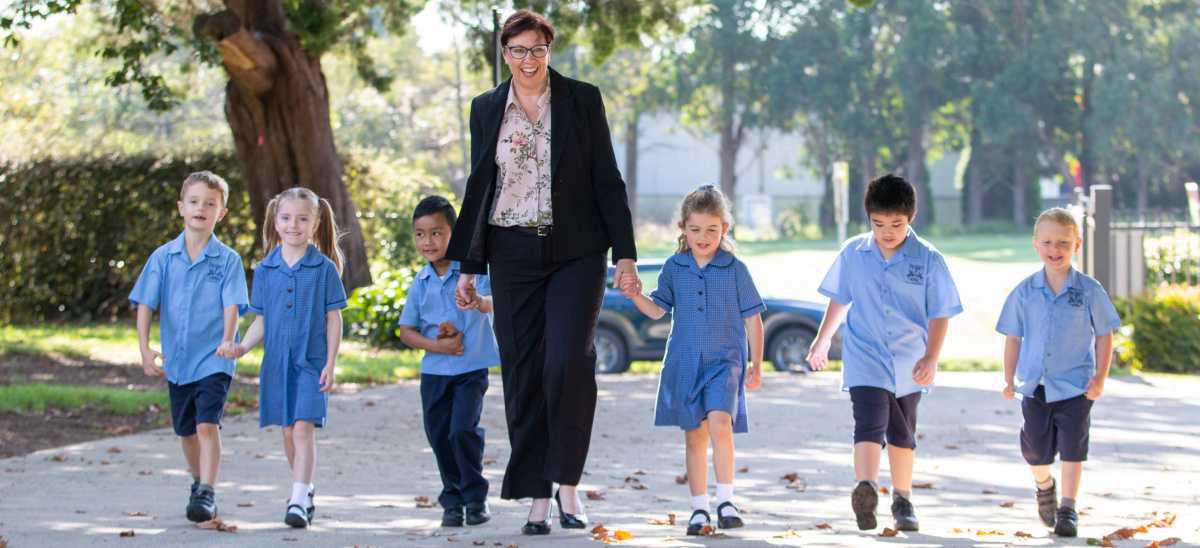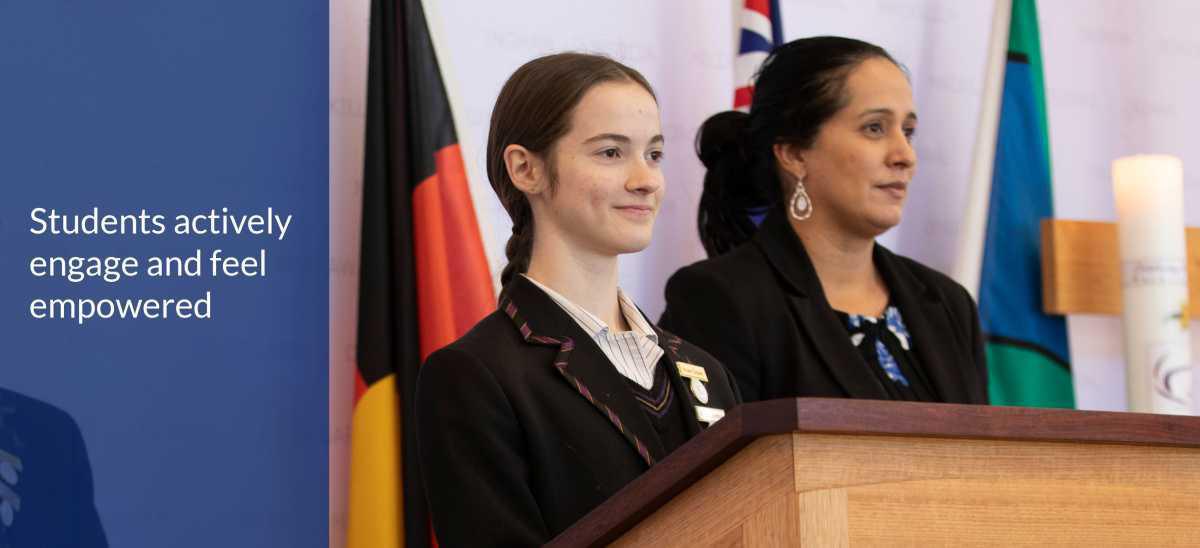The aim of this focus area is to improve accessibility, communication and the experience at key transition points so all students and families, especially those who have experienced disadvantage, vulnerability or marginalisation, have the opportunity to feel a sense of belonging in their school community.
The population of our Catholic schools and the communities around them are becoming increasingly diverse—made up of families with different structures, cultures, faiths, experiences, careers, incomes and aspirations. In different ways, each person within our school communities can face barriers to feeling connected, known, respected and loved.
As a Catholic system, we have a particular commitment to ensuring those who may have experienced disadvantage or marginalisation—including Aboriginal and Torres Strait Islander students and families, students with disability, families with diverse compositions, languages or cultural backgrounds, and families with financial or social constraints—feel a sense of belonging in our schools.
Guided by the example of Jesus, who taught that every person is inherently valuable and created in the image of God, we will proactively identify and remove as many barriers to belonging as possible.
Through improved and creative means of communication, tailored to the needs of families, we will promote open dialogue, encourage stronger collaboration and partnerships between schools and families, and positively impact learning and wellbeing outcomes.
And by focusing on transition practices before, during and post school, we will ensure our Catholic schools are vibrant and diverse communities, with students who feel known as person and learner, safe to share their gifts and talents, committed to their ongoing spiritual formation, and ready to contribute positively to the Church and their broader communities when their school journey concludes.
Improvement indicators
Progress against this focus area will be measured by:
- Student belonging
- Parent satisfaction
Achieving our aim
To drive improvement in this focus area, we will:
- Proactively identify and address barriers to belonging (e.g. making resources more accessible for diverse families; connecting families in need to relevant Church agencies; providing opportunities for families with other faith backgrounds to better understand the Catholic tradition).
- Introduce more consistent, creative and accessible communication methods between schools, families and the broader community.
- Provide authentic opportunities for students, parents, carers and staff to share their voice.
- Review the K-12 student journey and improve the student and family experience at key transition points.
- Proactively strengthen and create new partnerships within and outside school communities.
- Review and improve processes for raising and responding to concerns from students, parents/carers and staff.




